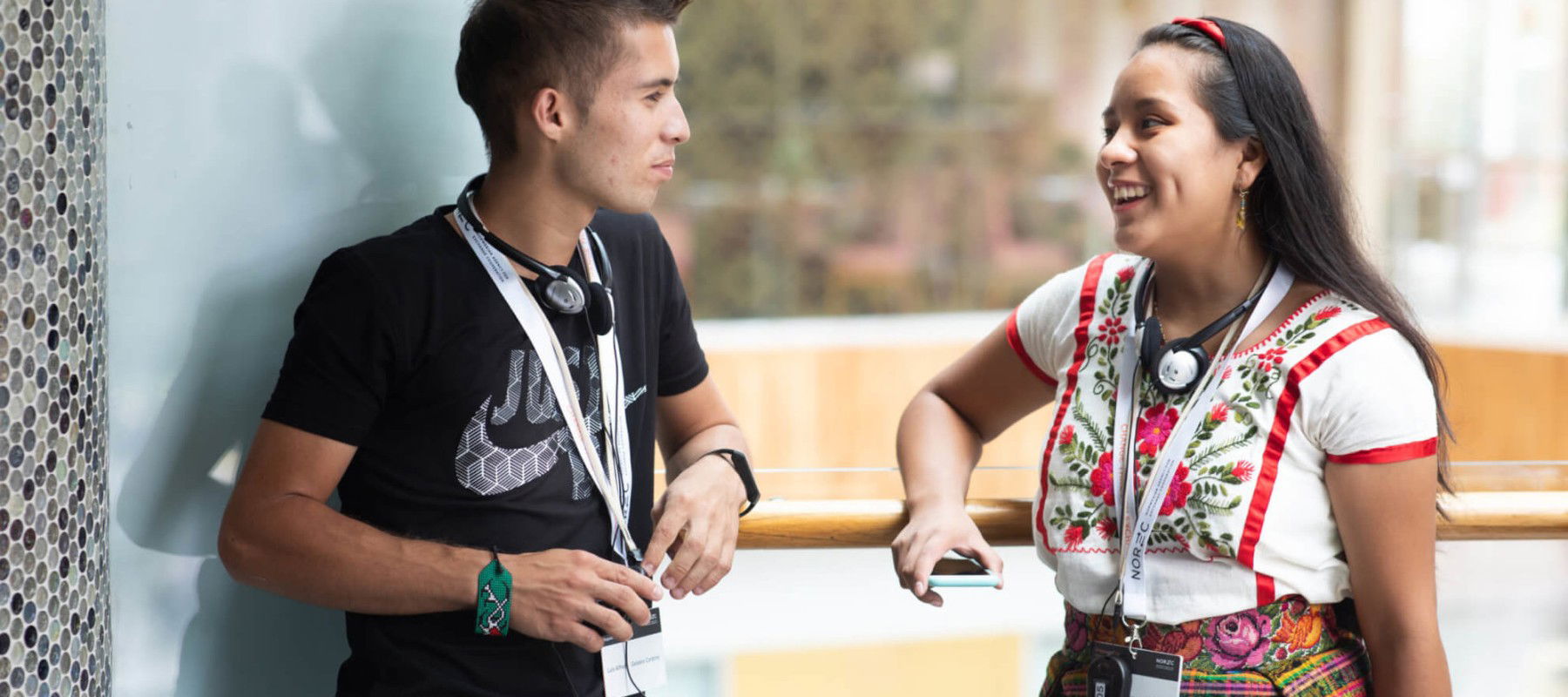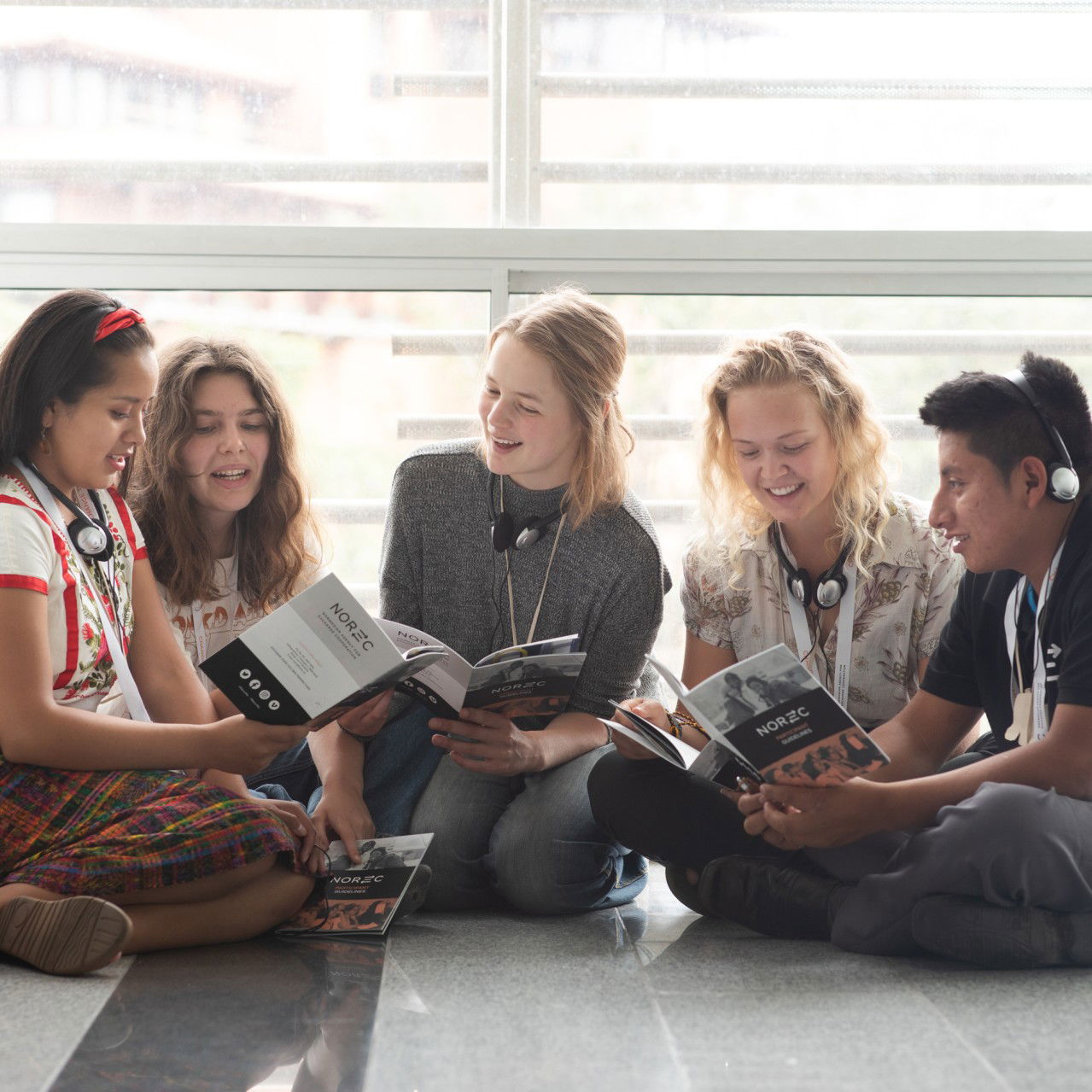

Being a Norec Participant
Norec finances exchanges, but it’s our partner organisations who are in charge of recruiting their own participants. If you would like to be a participant, you can read about current projects on our website and contact our partners directly when they advertise externally.
-
How to Become a Participant
Norec finances exchanges, but it’s our partner organisations who are in charge of recruiting their own participants. If you would like to be a participant, you can read about current projects on our website and contact our partners directly when they advertise externally.
-
Contract and Payment
The following expenses are covered by Norec, paid through your partner organisation:
- Housing costs, including gas, electricity, water, etc.
- Travel insurance and health insurance for the whole exchange, including during the training period.
- Monthly stipend determined by the cost of living both in your home country and your host country. Stipend may be taxable, either in your home or host country.
- Travel costs to and from your home country, and to and from the trainings.
- Participant activity costs, depending on your partner organisation’s needs.
- Departure/start up funds that may cover passport fees, visas, necessary vaccinations, work permits, necessary clothing and other equipment, etc.
Your Contract
Your contract is called a participant agreement and shall include, at minimum:
- The duration of your employment
- A description of your activities, duties, and responsibilities both during and after the exchange
- The amount of your monthly stipend, how it will be paid and in which currency
- Relevant tax deductions should be specified, if possible
- Working conditions during the exchange, including working hours, public holidays, contractual holidays etc.
-
Roles and Responsibilities
Here is a quick overview of everyone’s responsibilities before, during, and after the exchange.
Participant’s Responsibilities:
- Establish mutual expectations with your home partner and host partner, both before and during your exchange
- Clarify reporting routines before you leave
- Participate actively in all required trainings
- Remember that you represent both your home and host partners and Norec during your exchange
- Follow Norec’s ethical principles (below).
Host Partner’s Responsibilities:
- Preparation before and guidance during the exchange
- Provide safe and reasonable housing
- Provide participants with a security briefing
- Provide participants with an emergency plan, including all necessary contact details
- Pay participants’ stipends
Home Partner’s Responsibilities:
- Recruit participants
- Create a participant agreement
- Make sure that participants are prepared before they leave
- For some: organise a homecoming seminar
- Ensure that participants complete their follow-up assignments after the exchange
Norec’s Responsibilities:
- Funding
- Advise home and host partners
- Train partners and participants
- Ensure that reporting routines are followed
-
Ethical Principles
The work of Norec is based on equity, solidarity and reciprocity. At the core of these values lie our ethical principles. Participants, partners and employees are all ambassadors of Norec and shall act in accordance with these ethical principles in their work and in their relation to others.
We are culturally sensitive
We familiarise ourselves with local laws, culture, moral codes and traditions, and show respect in these matters through our behavior.We respect human dignity
We show respect, through our behavior, to all individuals, regardless of race, gender, religion, colour, national or ethnic origin, language, sexual orientation, age, socio-economic status, political conviction, or any other distinguishing feature. We do not accept any form of harassment, abuse, discrimination, or any form of reprehensible conduct.We are accountable
We consider the environmental consequences of our actions. We do not use our position to obtain benefits for others or ourselves. We have zero tolerance for corruption and other financial irregularities, and we report unacceptable circumstances or behavior. -
Health, Safety and Security
It is important to be aware of the health, safety and security situation when you are on exchange. When you are far away from home it is more challenging to differentiate between a safe situation and an unsafe one.
When you arrive, your host partner will provide you with:
- A security briefing
- An emergency plan with all necessary contact details
During the security briefing, make sure that you:
- Review potential risk factors
- Discuss what to do in case of emergency
- Remember to save the number for emergency services on your phone
Register your stay at your home country’s embassy
- For some countries, this is easily done online.
- Norwegian nationals can easily register their stay at reiseregistrering.no.
- Most embassies will contact their citizens with advice and information if there is a serious emergency.
Upcoming Trainings
Norec holds both physical and digital trainings for exchange participants and partner organisations. Read more about our upcoming trainings here.
Did you find what you were looking for?
Thank you for your feedback!
Thank you for your feedback!


